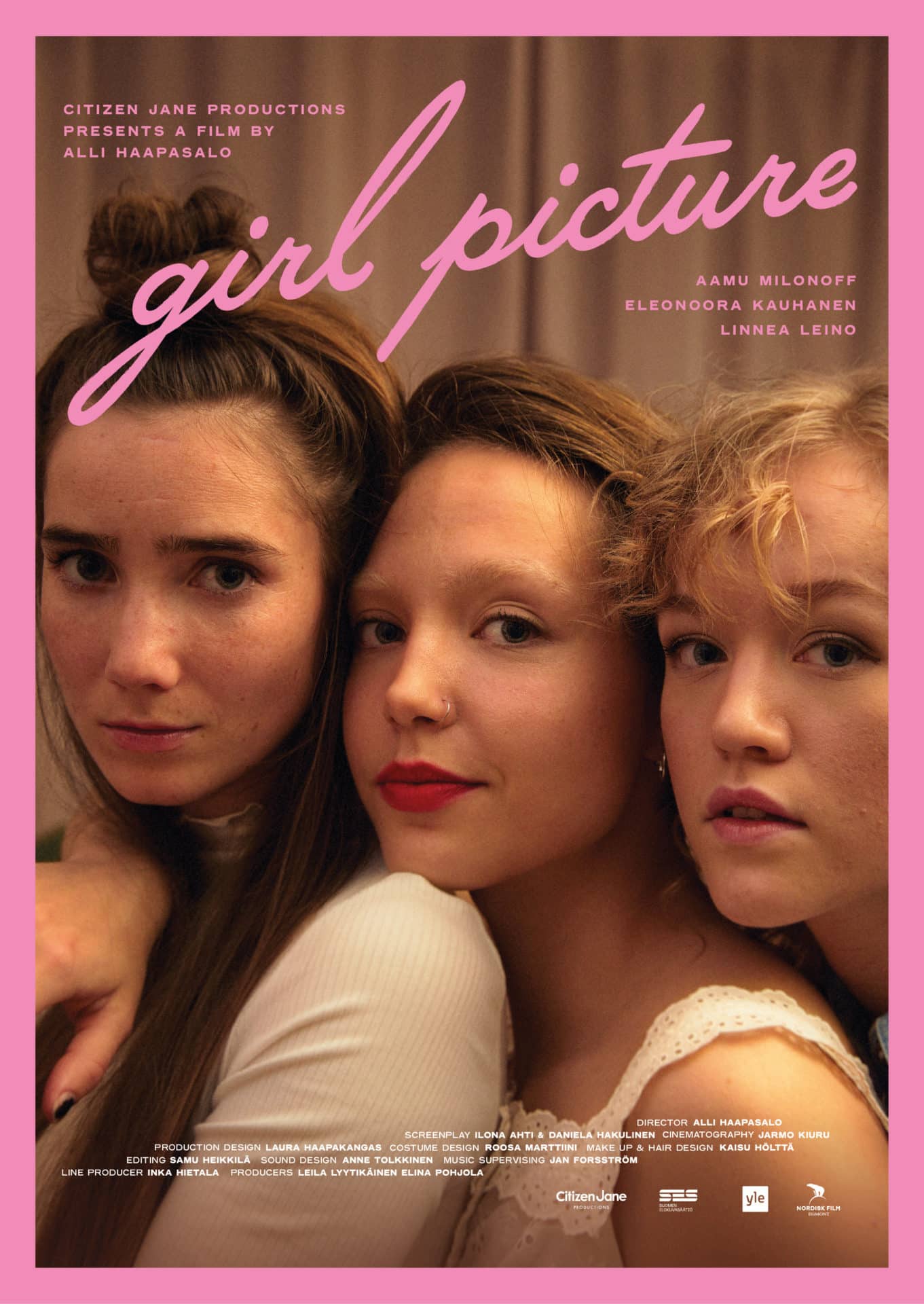
- Starring
- Aamu Milonoff, Eleonoora Kauhanen, Linnea Leino
- Writers
- Ilona Ahti, Daniela Hakulinen
- Director
- Alli Haapasalo
- Rating
- 14A (Canada)
- Running Time
- 100 minutes
- Release Date
- August 12th, 2022
Overall Score
Rating Summary
In the abundance of coming-of-age stories that are released each year, it’s hard for such a film to stand out amongst the crowd. However, Girl Picture (Tytöt Tytöt Tytöt in Finnish, which translates to Girls Girls Girls), winner of the Audience Award in World Dramatic Competition at the 2022 Sundance Film Festival, is an easy standout in a sea of niche, stereotyped coming-of-age stories. Wholly embracing its characters as real, fully realized characters, the brilliant screenplay by Ilona Ahtiand and Daniela Hakulinen carefully navigates sexuality, love, and friendship to craft a tender narrative around its three leads. Opting away from using cliches or tropes in order to craft its story, director Alli Haapasalo opts to treat her characters like real teenagers in order to show the messiness of adolescents whilst treating them with empathy and compassion.
None of Girl Picture would work without its three lead characters, each with distinct personality, storyline, and lived in experience, felt through her actress. Mimmi (Milonoff) and Rönkkö (Kauhanen) are best friends working at a smooth store in a local mall. Mimmi is searching for pleasure and attempting to understand her body, a character so confident in her sexuality and never shamed for it. Rönkkö, whilst balancing an absent mother, who is off tending to her new family, falls in love with a figure skater named Emma (Leino), who attempts to balance newfound love with her attempts to make it into the European Championships. Each of the three storylines allows the characters to have their own individual arcs alongside each of the relationships throughout the film. Despite the slight narrative unevenness, which naturally comes from two of the main characters dating each other and the ending feeling ever so rushed, the script allows the characters to breathe in their own skin and their dialogue felt natural, allowing audiences to connect with the characters and feel empathy for them.
So rarely does a film cover the theme of adolescent sexuality so freely and non-judgemental as Haapasalo’s. Mimmi and Emma’s queerness is never presented as an obstacle in their relationship, one of their storylines is not about them coming out or figuring out their sexuality. Rather, their relationship is presented naturally, and as any other couple would be. Though this seems like a medial point within the film, the casual queerness of their relationship, never commented on, never addressed, can only hope that other stories can follow in its path. Even though coming out stories are important, seeing queer people in stories where their queerness is not their only personality trait is just as important. Similarly, Rönkkö is a character searching for pleasure, a female who knows what she wants, confident in her sexuality. Rarely on screen is a character seen exploring their sexuality in such a way, attempting to figure out what she likes and desires. The way the film chooses to explore sexuality, love, and relationships is without shame or judgment, but rather in a way that embraces the messy parts of being a teenager.
As mentioned, the strongest aspect of Girl Picture is its three lead actresses who each deliver powerful, yet vulnerable performances. Their chemistry with each other felt magnetic, both Rönkkö and Mimmi’s, and Mimmi and Emma’s, and the film undoubtedly would not have worked if one of those had faltered. Their relationships felt authentic, the bickering between Rönkkö and Mimmi never lasted long as they bounced advice off one another, relaying each of their experiences. The buildup of Emma and Mimmi’s relationship, though fast paced, felt genuine in portraying the ups and downs of young love and the push and pull between want and desire. Each of them having an arc outside of the story of their relationship allowed for the characters to breath, their narrative not wholly consumed by a relationship and allowing them to feel like real people.
Despite mild narrative issues, mostly pertaining to its 100+ minute runtime, the writers and director of Girl Picture never aim to judge or shame their characters. Rather, they want nothing more than to create deep empathy for each of them, portraying them as confident, sensual, and vulnerable. By embracing its portrayal of female sexuality, Girl Picture allows its characters to make mistakes without judgment. Throughout the film, each of the characters discover themselves, figure out their desires, and navigate their way through female adolescence.
still courtesy of Sundance
If you liked this, please read our other reviews here and don’t forget to follow us on Twitter or Instagram or like us on Facebook.


